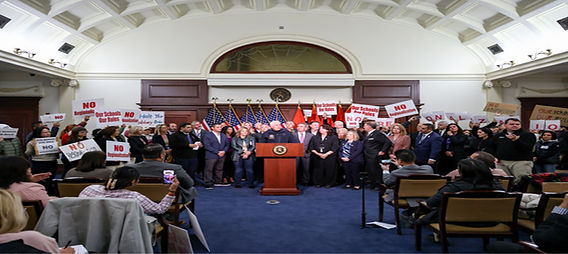Navigating Racism: A Mother’s Concern for Her Future Child
Confronting Racism: A Mother’s Worries for the Future
The world we live in today is beautiful, diverse, and hectic all at the same time. As I sit here pondering the complexities of parenthood, one concern looms large in my mind: how do I prepare my future child for a society where racism still exists? It’s a burning question that many soon-to-be parents might grapple with. And yes, it’s daunting. Balancing the need to protect your child from prejudice while also teaching them about the realities of the world is a tightrope walk that requires insight, empathy, and a heap of love.
In this article, we’ll dive deep into the intricacies of racism, the fears that harbor in a mother’s heart when thinking about her child’s future, and how to pivot these worries into actionable strategies for raising an aware, resilient human being. Whether you’re gearing up for parenthood or simply looking to understand the dynamics of this issue better, there’s plenty to unpack.
Understanding Racism: The Landscape in 2024
So, what exactly is racism? At its core, racism is the belief that a particular race is superior or inferior to another, often accompanied by prejudices based on that racial identity. While laws have changed over the decades, the societal fabric still weaves in attitudes that can be harsh and unforgiving. One moment you may be strolling through a park, enjoying a quiet afternoon, and the next, a racially charged comment may snap you back into a reality that feels all too uncomfortable.
The Historical Context
To understand where we are today, it’s vital to glance back at history. Systemic racism has roots that dig deep into our societies, manifesting in various forms—individual, institutional, and structural. Steps toward equality have certainly been made, but bumps still remain in the road. From workplace injustices to schoolyard bullying, racism isn’t a phantom of the past; it’s ever-present and evolving.
The Emotional Toll
As a future mother, the mere thought of my child facing discrimination ignites a fear that wraps around my heart. It’s the kind of fear every parent knows well; it’s that protective instinct that kicks in when your child takes their first steps into the world. I wonder: How can I shield them from the prejudices and biases they’ll inevitably confront?
Preparing for the Future: Fostering Awareness and Resilience
Can we predict how our kids will experience the world? Absolutely not. But what we can do is equip them with tools—tools to navigate the complexities of interactions in a diverse society. This involves boosting their awareness of race and racism while instilling confidence in their ability to deal with prejudiced remarks or systems.
Open Conversations
Communication is key. The most powerful tool we have as parents is our ability to talk. Initiating discussions about race and racism will allow us to create a safe space for our children to express their thoughts and feelings.
- Start by asking them open-ended questions, allowing them to explore their understanding.
- Share stories. Real-world examples, whether from history or current events, can significantly impact their perspectives.
- Encourage them to voice their feelings when they encounter prejudice, ensuring they feel heard and understood.
Educate, Educate, Educate
Knowledge is empowering. Make it a family affair to learn about different cultures, histories, and perspectives. Get books, watch documentaries, or attend multicultural events in your community.
- Celebrate diversity: Create traditions in your household that honor a variety of cultures.
- Challenge stereotypes: Help them understand that people are multi-faceted, and resist the impulse to box individuals into categories based on race or ethnicity.
Model Behavior
As any parent will tell you, kids are a mirror. They reflect our actions far more than our words. Being a positive role model matters immensely:
- Demonstrate inclusivity: Surround your children with diverse friends and experiences. Let them you navigate friendships that celebrate differences rather than acknowledge them.
- Speak out: When you witness acts of racism, whether subtle or blatant, make it a point to address them. Show your child that silence is not the answer.
Building Emotional Resilience
Life won’t always be smooth sailing. If we want to prepare our future child for the inevitable bumps in the road, emotional resilience is necessary.
Foster Empathy
Empathy is a powerful antidote to hatred. Teach your child to understand and share the feelings of others, especially those who face discrimination or adversity.
- Encourage friendships: Build relationships with families from diverse backgrounds so that your child learns from others firsthand.
- Use literature and media: Introduce stories that highlight various lived experiences.
Equip Them with Coping Strategies
When racism knocks at their door, how will your child respond? Teaching them coping strategies can empower them:
- Validate emotions: Regardless of whether your child is upset, frightened, or confused, acknowledge their feelings.
- Role-play scenarios: Together, navigate hypothetical situations they might encounter, empowering them to respond confidently.
Being Proactive: Getting Involved
Advocacy isn’t just a notion; it’s a calling that demands action. Being an active participant in your community can help cultivate an environment that fosters equality.
Engage in Community Organizations
Being part of community initiatives that promote racial justice can provide your child with a sense of belonging and purpose.
- Volunteer: Offer your time to organizations that help build bridges between different racial groups.
- Support local movements: Attend rallies, discussions, and workshops focused on dismantling systemic racism.
Educate Others
Knowledge doesn’t have to be kept within family walls:
- Share resources: Push against the narrative by sharing articles, books, or podcasts that encourage understanding.
- Challenge discriminatory remarks: Address issues as they arise in your social circles, be it with friends or family, to help foster a more inclusive mindset.
The Importance of Self-Reflection
Reflection can be a powerful tool in our anti-racism journey. As you prepare for parenthood, take time to assess your own views on race and bias.
Examine Personal Bias
No one is free from biases—confronting them head-on is essential:
- Educate yourself: Seek to understand the privilege you might hold and how it affects your worldview.
- Stay accountable: Openly discuss these topics with friends, which allows for growth and pushes towards a more equitable mindset.
Build a Support Network
Surround yourself with like-minded individuals who share a commitment to address racism. Having a support network can empower you to raise a child with a strong moral compass.
- Join parenting groups: Look for communities focused on diversity and inclusion.
- Build friendships: Align with families who share similar goals in their upbringing.
Conclusion
Navigating the ambiguous waters of race and bias can be overwhelming for any future parent, especially a mother concerned about her child’s future in a world that still wrestles with racism. There may be days when all the discussions, role-play, and education feel futile against the onslaught of prejudice.
But remember, each small step takes us toward a brighter future. We aren’t just preparing our children for the world; we’re working to change the world for them. Teaching empathy, promoting awareness, and addressing our biases are essential chatting points that can change the landscape of tomorrow’s society. Embrace the conversations, challenge the status quo, and raise a child who believes in equality and justice for all.
FAQs
1. How can I approach my young child about racism without scaring them?
Start with simple, age-appropriate language. Focus on teaching them empathy and respect for differences while creating a positive narrative around diversity.
2. What should I do if my child experiences racism?
Listen to them actively. Validate their emotions and empower them with coping strategies. Discuss the incident and explore ways they can respond positively.
3. Are there books you recommend for discussing racism with children?
Absolutely! Some great titles include “All Are Welcome” by Alexandra Penfold and “Last Stop on Market Street” by Matt de la Peña.
4. How can I make sure my efforts against racism are effective?
Regularly educate yourself, reflect on your own biases, support anti-racist movements, and foster an ongoing dialogue with your child.
5. What signs can I look for to gauge my child’s understanding of racism?
Pay attention to their responses in discussions about race, their ability to empathize with others, and their engagement in diverse friendships and activities.







